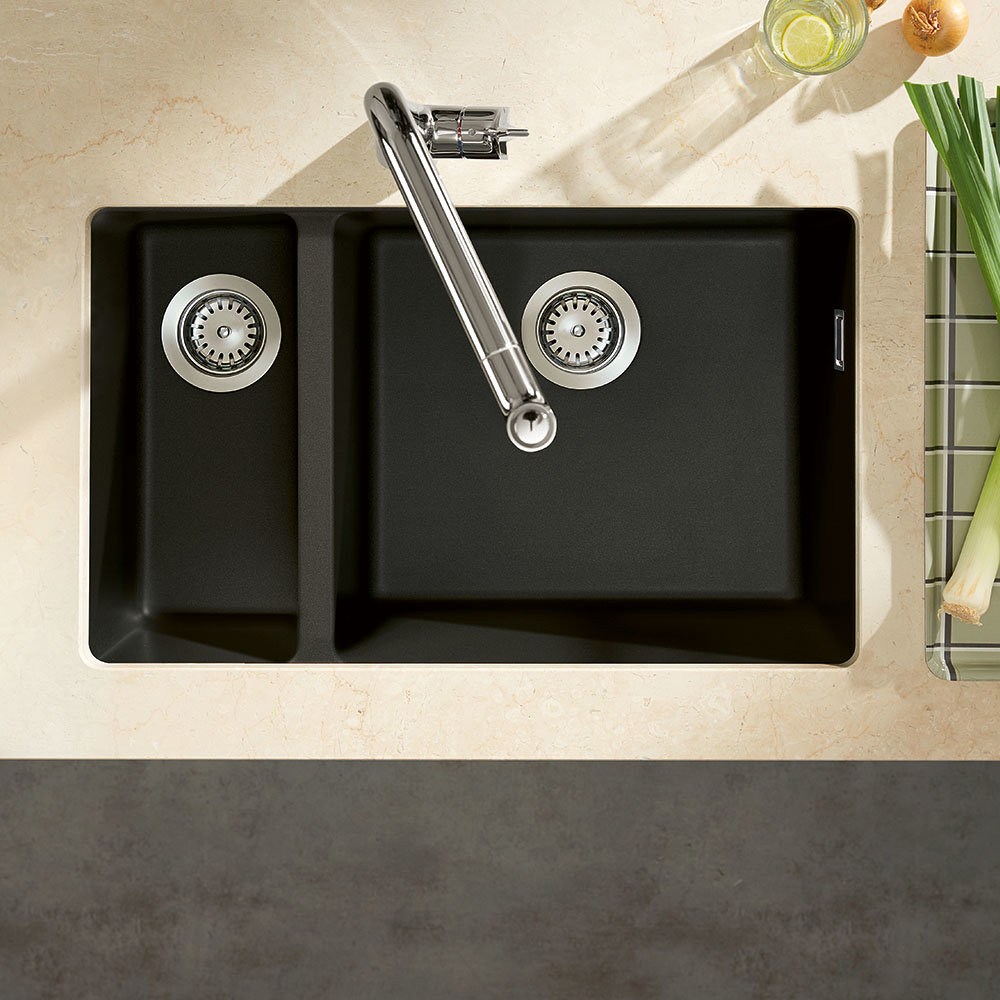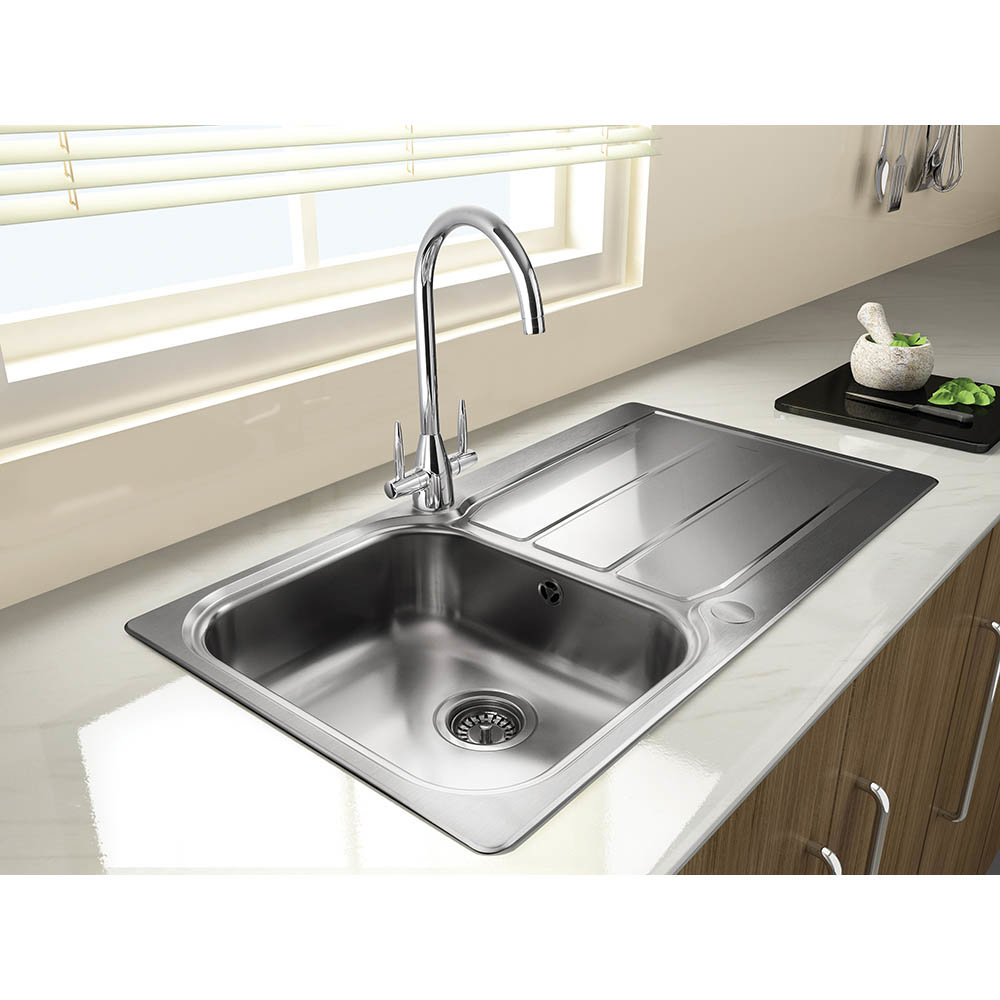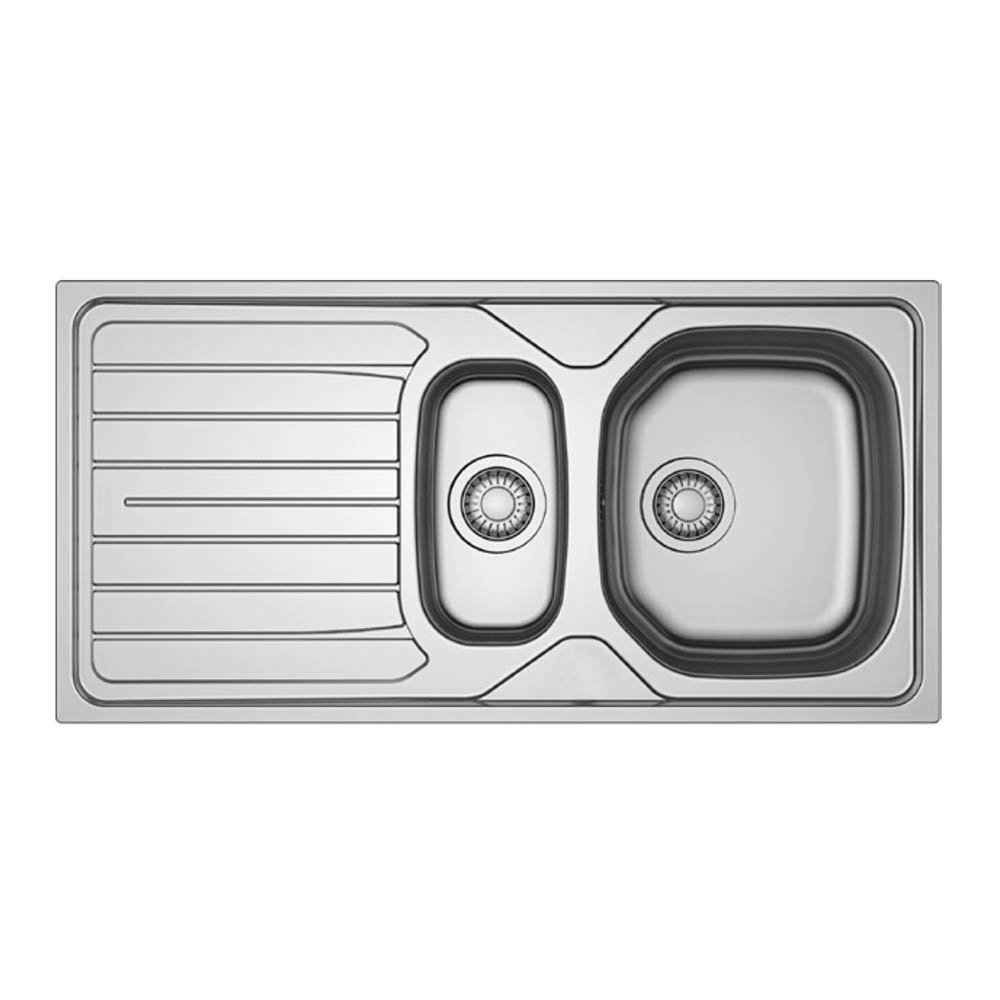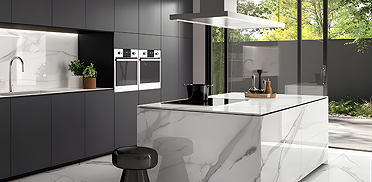Grab Up To 60% Off In Our February Sale!
Plus an extra 10% off our Arezzo range with code AREZZO10. Code ends in:
Stainless Steel vs. Granite: Choosing the Best Kitchen Sink Materials
Stainless Steel vs. Granite: Choosing the Best Kitchen Sink Materials
We've weighed up all the pros and cons of granite sinks and stainless steel sinks to help you decide which will work best for your kitchen.
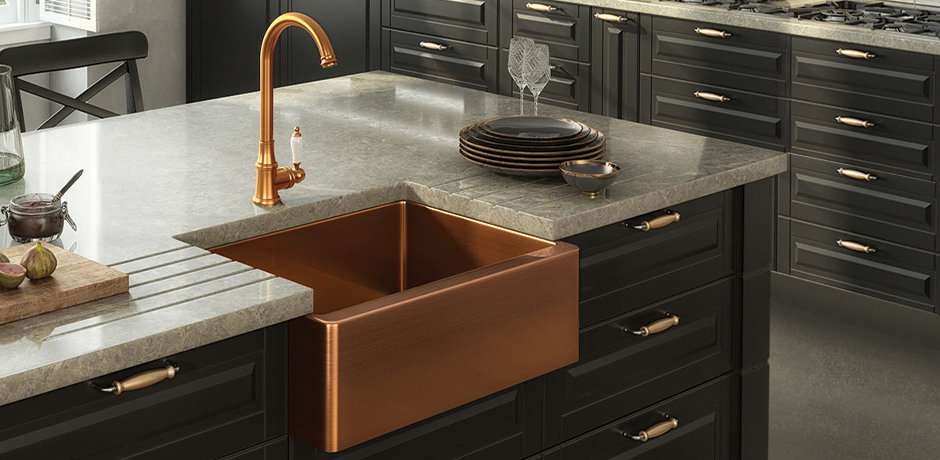
With the kitchen being the heart of the home, it’s crucial that every aspect of yours is well thought out.
Very few fixtures, however, are as important as your kitchen sink.
Quite easily the most used part of the kitchen, you’re going to want the best when it comes to your sink. A sink that truly looks the part and does exactly what you need it to do.
While we’ve previously covered the importance of choosing the right size kitchen sink and the right type of kitchen sink, there’s another factor that can have an impact - what it’s made of.
So, to give you some guidance, we’re pitting two of the most popular kitchen sink materials against one another to assess the benefits of each. Read below our steel sink vs granite sink comparison, and get more information on which would be best for your kitchen.
We’ll also recommend a few of our most sought-after kitchen options to help those in need of some kitchen sink inspiration!
The Pros and Cons of Granite Sinks
Known for its toughness, granite is a heavy-duty material that doesn’t rust and can withstand all sorts of use. Resilient against almost everything you can throw at them, most granite sinks are scratch-resistant and heat-resistant, as well as being resistant to all manner of food stains.
In addition to their practical qualities, granite sinks have become highly desirable for their looks. A simple but highly effective way to add a natural touch to kitchens, granite’s organically occurring patterns and veins make almost every sink unique. You’ll find options in a range of colours, too.
The only downsides of granite sinks are minor. The fact that they tend to be a lot heavier than stainless steel sinks can make them a bit trickier to install - especially if you’re attempting to do it yourself. They can also be chipped if heavy items, such as cast iron pans, are dropped on them from a height - but this extremely unlikely to happen.
Both of our top picks here are from hansgrohe’s kitchen sink range. These stylish and luxurious sinks can seamlessly integrate with all styles of kitchen and are made using a unique composite of fine quartz sand and 20% high-grade acrylic.
The resulting surface is one that is both incredibly hard as well as smooth and pore-free. This surface makes them extremely easy to clean and prevents dirt from penetrating or sticking; a blessing in those busy family kitchens!
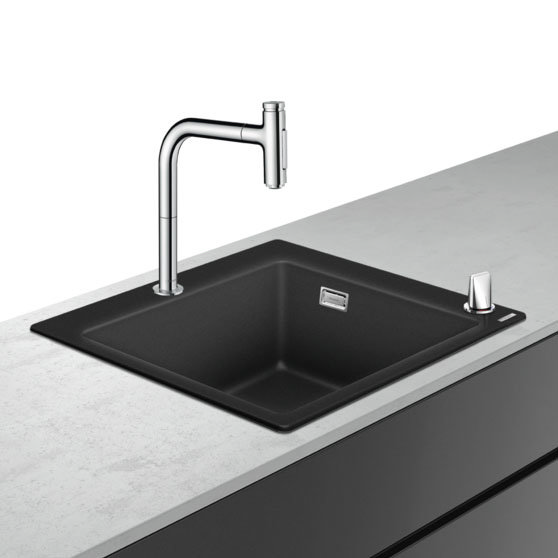
But hansgrohe SilicaTec kitchen sinks aren’t just about functionality and toughness. Black, anthracite and grey composite kitchen sinks are all the rage at the minute, so anything from the range will be certain to give your kitchen a lasting style boost, too.
Granite Sinks In Summary...
Pros:
- Extremely hard-wearing.
- Stylish, and available in multiple finishes.
- Scratch-resistant.
- Resistant to food stains.
- Less prone to water spots.
- Great heat resistance.
- Quieter than steel.
Cons:
- Heavy, which can make them slightly more difficult to install.
- Risk of chipping when washing heavy items.
The Pros and Cons of Stainless Steel Kitchen Sinks
Thanks to its unrivalled durability, stainless steel is the most popular material used for UK sinks. Rust and heat don’t pose a threat to this rugged metal, while the sleek and shiny surfaces it creates make cleaning and maintenance a breeze.
Due to their popularity, stainless steel sinks are available in countless contemporary and traditional designs to suit almost any kind of kitchen. There are a plethora of sizes on offer too, with options to fit even the smallest of kitchens - such as those in studio apartments and caravans.
There are a couple of slight downsides to stainless steel sinks. Firstly, unlike granite, stainless steel can start to pick up a lot of visible scratches through years of use. While many of these can be buffed out with a bit of maintenance work, they can become unsightly if not attended to.
They’re also considerably louder than granite sinks when in use. Though much of this noise can be alleviated with proper insulation, picking a thicker and more expensive stainless steel sink is your best bet if noise is a worry.
The first of our recommendations: the eye-catching Rangemaster Glendale. An impressive single bowl stainless steel sink, the Glendale is manufactured using high-grade 18/10 stainless steel and sports an elegant, pared-back design. It’s best suited for medium-sized kitchens.
Those with busier kitchens, on the other hand, should consider the Franke 1.5 Bowl Single Drainer sink. This large sink is made using 0.6mm thick 304 stainless steel; a grade renowned in industrial applications for its heat resistant qualities.
Stainless Steel Sinks In Summary...
Pros:
- Heat resistant and never rusts.
- Bright and appealing looks.
- No risk of chipping.
- Extremely easy to clean and low-maintenance.
- Wide variety of options.
- Cannot be chipped or cracked.
- Lighter than other sink materials, making them easier to install.
Cons:
- Can be louder than granite when in use.
- Can be scratched over time.
The Verdict
In short, stainless steel and granite are both excellent materials for kitchen sinks. As there are very few negative aspects to either material, we suggest picking the option that is more suited to your needs.
Worried about being able to install it with ease? Go for a light stainless steel sink. More concerned about how loud your sink is in use? Opt for a weighty granite one. Whichever you settle on will be sure to look stylish and perform admirably through many years of use.
If you’ve found our guide to steel and granite kitchen sinks helpful, why not take a look at Should I Get a Boiling Water Tap? Upgrading other parts of our kitchen too? Check out our Best Kitchen Floor Tiles guide!

George
George is one of our interior experts. He loves to write about the latest bathroom trends and he's a dab hand with bathroom DIY too.
